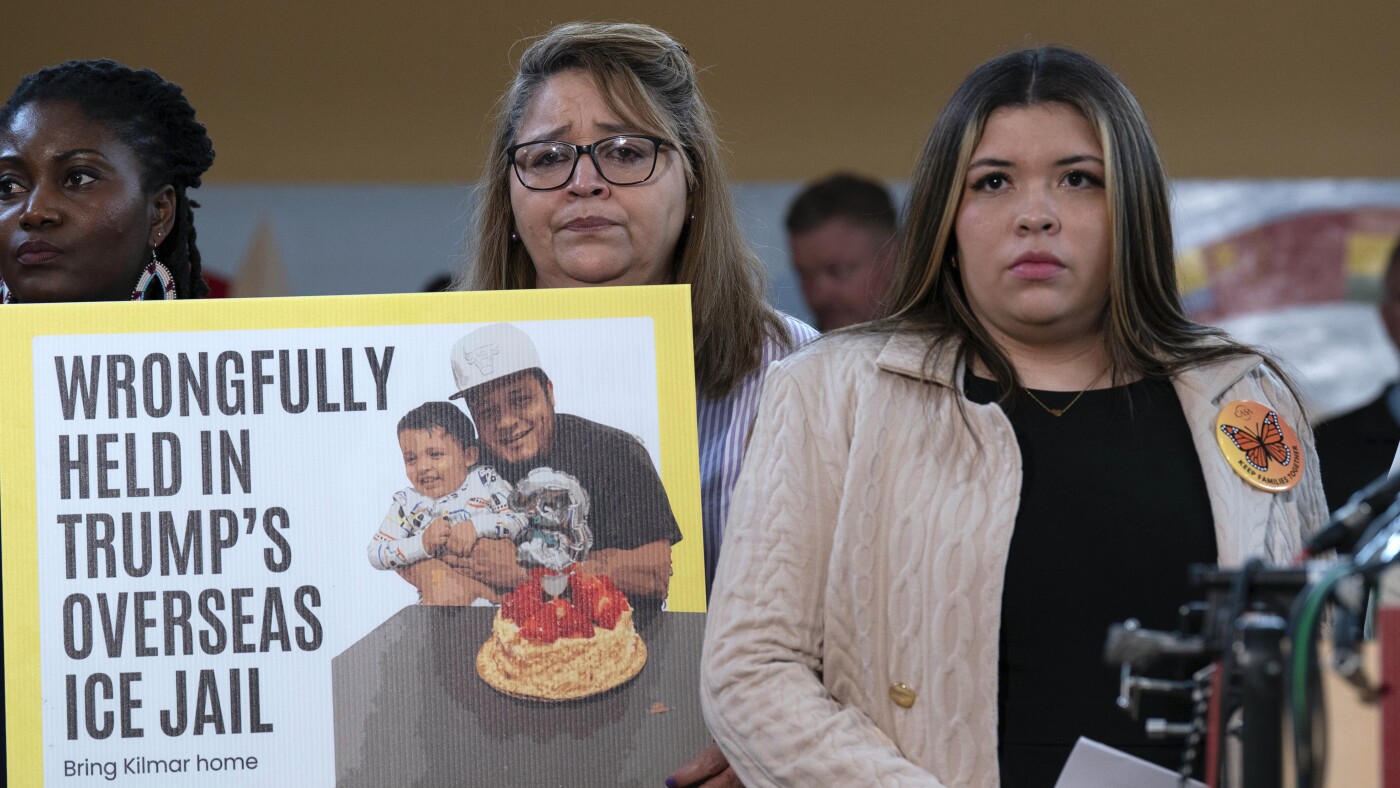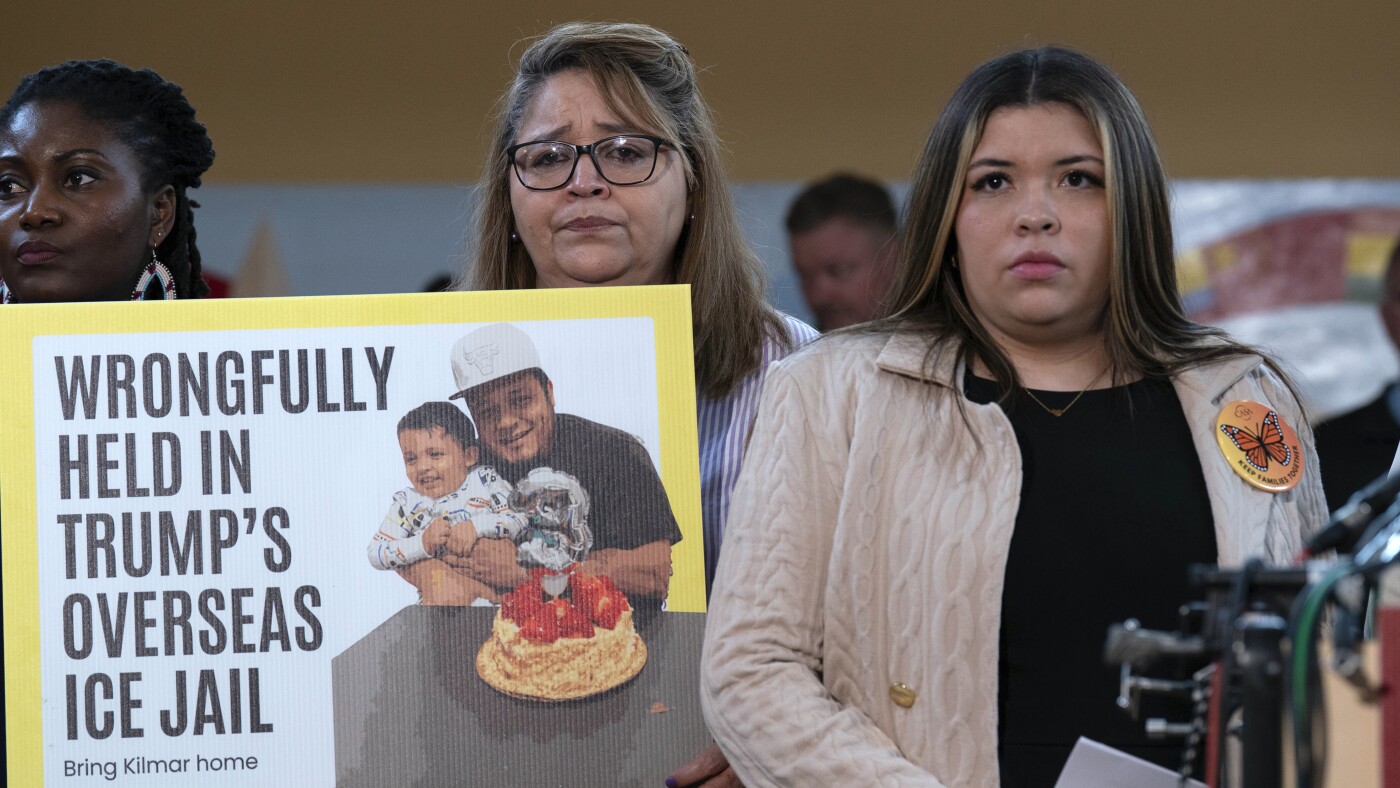The case of Kilmar Abrego Garcia is a stark illustration of the devastating consequences that can arise when immigration policies and human rights intersect in a flawed manner. His story, which unfolded in March, highlights the potential for systemic failures to inflict profound suffering on individuals caught in the crossfire of bureaucratic errors and harsh detention conditions. The narrative of Abrego Garcia’s wrongful deportation and subsequent ordeal in El Salvador’s penal system serves as a powerful reminder of the need for accountability, reform, and a renewed commitment to human dignity.
The Foundation of a Nightmare: Wrongful Deportation
At the heart of Abrego Garcia’s suffering lies a fundamental error: his mistaken deportation from the United States. This initial act, which may seem purely administrative, set in motion a chain of events that would lead to profound physical and psychological torment. The fact that a person could be removed from their established life and thrust into a foreign and hostile environment raises serious questions about the safeguards and protocols within immigration enforcement. The consequences of such errors can be catastrophic, as seen in Abrego Garcia’s case, where a bureaucratic mistake led to a descent into a nightmare of abuse and neglect.
The deportation process is often portrayed as a straightforward administrative procedure, but the reality is far more complex. Errors can occur at various stages, from misidentification to flawed documentation. In Abrego Garcia’s case, the error was not merely a procedural oversight but a profound failure that had life-altering consequences. This raises critical questions about the mechanisms in place to prevent such mistakes and the recourse available to individuals who find themselves wrongfully deported. The lack of robust safeguards in the deportation process underscores the need for systemic reforms to ensure that human rights are protected at every stage.
The Horror of CECOT: A System Designed for Dehumanization
Abrego Garcia’s destination was the Terrorism Confinement Center (CECOT), a facility notorious for its harsh conditions and treatment of inmates. This is where the true horror of his experience unfolded. Upon arrival, Abrego Garcia was allegedly subjected to a series of dehumanizing acts, including being stripped naked and having his head shaved. Such actions are not simply procedural; they serve to strip away a person’s identity and assert absolute control from the outset. The psychological impact of these acts is profound, as they create an environment of fear and vulnerability that permeates every aspect of the inmate’s experience.
The conditions within CECOT are a stark reminder of the potential for abuse within detention facilities. The facility’s reputation for brutality is well-documented, and Abrego Garcia’s account aligns with reports from other inmates who have described similar experiences of dehumanization and mistreatment. The systematic use of tactics such as sleep deprivation, sensory overload, and denial of basic necessities is designed to break down a person’s mental and emotional resilience. The cumulative effect of these abuses is devastating, leaving lasting scars on the psyche of those who endure them.
Physical and Psychological Torture: A Pattern of Abuse
The core of Abrego Garcia’s account details systematic physical and psychological torture. He claims to have endured “severe beatings,” the specifics of which remain largely undisclosed but suggest a pattern of deliberate infliction of pain. Beyond the physical violence, Abrego Garcia reported “severe sleep deprivation,” a tactic known to break down a person’s mental and emotional resilience. The combination of physical and psychological tactics is particularly insidious, designed to create an environment of constant fear and vulnerability.
Furthermore, Abrego Garcia was reportedly forced to kneel for extended periods, deprived of adequate nutrition, and subjected to constant bright lights in an overcrowded cell without windows. These conditions create an environment of sensory overload and deprivation, exacerbating the psychological toll. The denial of basic human necessities like adequate food and rest constitutes a form of slow, agonizing torment. The cumulative effect of these abuses would be devastating, leaving lasting scars on Abrego Garcia’s psyche.
The use of such tactics is not only a violation of human rights but also a clear indication of a system that prioritizes control and punishment over rehabilitation and justice. The conditions within CECOT are a stark reminder of the potential for abuse within detention facilities and the need for international scrutiny and intervention. The case of Abrego Garcia underscores the importance of holding those responsible for such abuses accountable and ensuring that such practices are eradicated.
The Legal Battle and International Implications
Abrego Garcia’s lawyers have filed court documents detailing his ordeal, turning his individual case into a potential legal and political flashpoint. The legal arguments will likely center on the principle of due process and the government’s responsibility to protect individuals from harm, even after deportation. The case also raises broader questions about the United States’ role in ensuring the safety and well-being of individuals it deports, particularly when there is a known risk of mistreatment in the receiving country.
The legal battle surrounding Abrego Garcia’s case is not just about seeking justice for one individual but also about setting a precedent for future cases. The principle of due process is a cornerstone of any just legal system, and its violation in cases of deportation can have far-reaching consequences. The United States, as a signatory to various international human rights treaties, has a responsibility to ensure that its actions do not result in harm to individuals, even after they have been deported. The case of Abrego Garcia highlights the need for robust legal mechanisms to address such violations and ensure accountability.
Echoes of a Broken System
Abrego Garcia’s story is not an isolated incident. It resonates with accounts from other deported individuals who have reported similar experiences of abuse and neglect. This suggests systemic problems within both the deportation process and the conditions of detention in certain countries. It demands a thorough examination of the policies and practices that allowed such an egregious error to occur and the mechanisms in place to prevent future abuses.
The case of Abrego Garcia is a symptom of a broader systemic failure within the immigration enforcement apparatus. The lack of safeguards to prevent wrongful deportations, coupled with the harsh conditions in detention facilities, creates an environment where abuse and neglect can thrive. This underscores the need for comprehensive reforms that address both the procedural aspects of deportation and the conditions of detention. Such reforms must be guided by a commitment to human rights and the dignity of every individual, regardless of their immigration status.
A Call for Accountability and Reform
The ordeal of Kilmar Abrego Garcia serves as a powerful indictment of a system that can inflict immense suffering on vulnerable individuals. It is a call for accountability, demanding that those responsible for the initial error and subsequent mistreatment be held to answer. More importantly, it is a call for reform, urging a fundamental re-evaluation of immigration policies and practices to ensure that human rights are protected at every stage of the process.
Accountability is a critical component of any system that seeks to prevent abuse and ensure justice. Those responsible for the wrongful deportation of Abrego Garcia and the subsequent mistreatment within CECOT must be held accountable for their actions. This includes not only the individuals directly involved but also the systemic failures that allowed such abuses to occur. Reform must be comprehensive, addressing both the procedural aspects of deportation and the conditions of detention. This includes implementing robust safeguards to prevent wrongful deportations, improving the conditions within detention facilities, and ensuring that individuals have access to legal recourse when their rights are violated.
Remembering Humanity
In the end, Abrego Garcia’s story is a testament to the resilience of the human spirit in the face of unimaginable adversity. His willingness to come forward and share his experiences is an act of courage that deserves recognition and support. As we grapple with the complexities of immigration policy, let us not forget the human faces behind the headlines, the individuals whose lives are profoundly impacted by our decisions. Let the ordeal of Kilmar Abrego Garcia serve as a constant reminder of our shared responsibility to uphold the values of justice, compassion, and human dignity.
The case of Kilmar Abrego Garcia is a powerful reminder of the human cost of flawed immigration policies and the need for systemic reform. His story underscores the importance of accountability, the protection of human rights, and the dignity of every individual. As we move forward, let us strive to create a system that prioritizes justice, compassion, and the well-being of all individuals, regardless of their immigration status. The ordeal of Kilmar Abrego Garcia must not be in vain; it must serve as a catalyst for change and a reminder of our shared responsibility to uphold the values that define us as a society.








